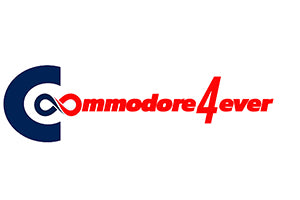
In a Perfect World Where Commodore Won: An Alternate Timeline of Retro Computing Dominance
Share
Imagine waking up in a world where Commodore didn't just compete in the computer wars but won. A world where the sleek, efficient simplicity of 8-bit machines evolved instead of being cast aside. Where the spirit of creation wasn’t locked away in corporate headquarters but thrived in the hands of everyday people.
Instead of billion-dollar companies controlling the direction of technology, individuals—hobbyists, bedroom coders, and garage innovators—would have led the way. The tools to create, modify, and expand the digital world would be as common as a keyboard, and technology wouldn’t be something we just consumed, but something we shaped.
What would it have looked like? Let’s take a journey into this alternate history.
The Art of PETSCII and the Beauty of Limitation
Imagine a world where PETSCII never faded, but instead became the foundation of digital creativity. Artists would have pushed the limits of character-based visuals, creating detailed masterpieces through clever arrangements of symbols and colors. The beauty of simplicity would have flourished—every pixel, every character block, intentionally placed to evoke emotion and movement.
Massive PETSCII displays would fill cityscapes, lighting up storefronts and theaters with vibrant, animated signage. Modern design wouldn’t be about ultra-realism, but about how much expression could be achieved within a minimalistic framework. Digital art galleries would feature Commodore-style creations, showcasing the unique charm of pixelated imagination.
Would our appreciation for art be different? Would creativity feel more accessible to the everyday person instead of something reserved for high-end software and professional studios?
BBS Networks Over Corporate-Controlled Internet
The internet, as we know it, would never have taken the shape of a handful of massive companies controlling our access to information. Instead, BBS networks would be the dominant form of digital interaction, hosted by enthusiasts and small communities rather than tech giants.
Imagine logging in, greeted by the soft glow of a PETSCII welcome screen, each system with its own personality. Discussions wouldn’t be governed by faceless algorithms but by real people, where communication felt personal and meaningful. No invasive data mining, no endless, mindless scrolling—just connection, knowledge-sharing, and the joy of discovering new software, games, and ideas.
Would we be more connected as a society if the digital world felt more like a neighborhood and less like a corporate shopping mall?
Gaming Would Be About Imagination, Not Just Graphics
If Commodore had won, gaming wouldn’t have evolved into an arms race of ultra-realistic visuals. Instead, gameplay, storytelling, and player creativity would be king. We’d have advanced, refined sprite multiplexing, parallax scrolling, and hardware tricks that made every game feel like an innovation.
Would modern classics still exist, but with PETSCII-rendered cutscenes? Would developers have continued pushing cartridge-based instant-load systems, creating an industry where speed and accessibility mattered more than download sizes?
Perhaps game development wouldn’t be walled off to giant corporations. Imagine a world where anyone with a Commodore machine could develop and distribute their games just like in the early days—a world where modding, hacking, and tinkering weren’t just allowed, but encouraged.
User Groups Instead of Social Media
Instead of doom-scrolling, people would gather in User Group Meetings (UGMs)—real-world meetups where enthusiasts traded software, discussed programming tricks, and shared discoveries in person. You wouldn’t just read about the latest tech, you’d experience it hands-on, surrounded by like-minded individuals.
Could this world have led to a stronger sense of community? Instead of sitting behind screens in isolation, would we have bonded over our shared passion for technology, making friendships that lasted beyond the digital realm?
Would It Have Made the World Better?
Would a Commodore-led world, where creation was in everyone’s hands, have been a better one? Instead of outsourcing our creativity to a few major companies, would we all be active participants in shaping technology?
Maybe we wouldn’t have faster processors, photorealistic graphics, or the cloud—but maybe we wouldn’t need them. Maybe, in a world where technology remained personal, creative, and hands-on, we’d feel more connected to what we build. We’d take pride in our creations rather than just upgrading to the next big thing.
What do you think? Would this alternate reality have led to something better, or just different? Share your thoughts with us on @C4EverOfficial (X) and Commodore4Ever on Facebook and Instagram!
Keep the 8-bit dream alive!
